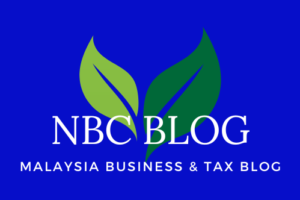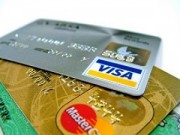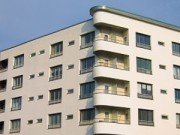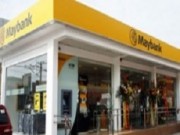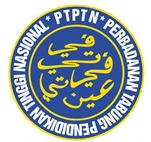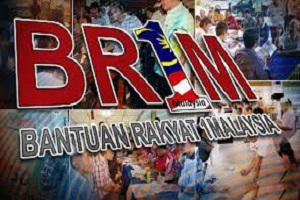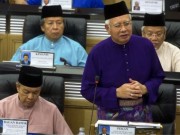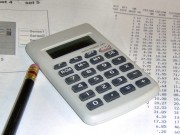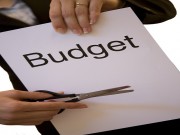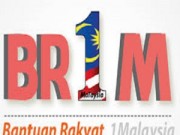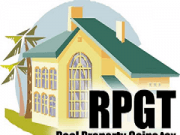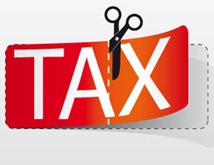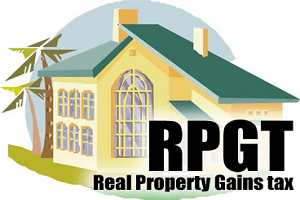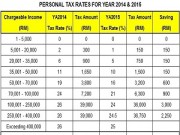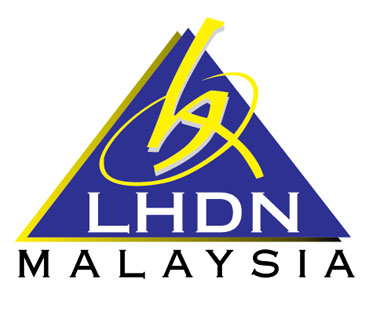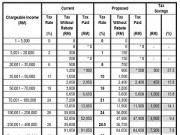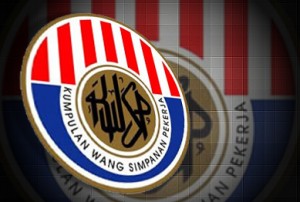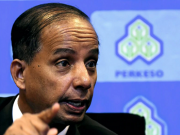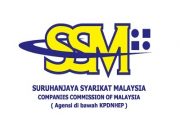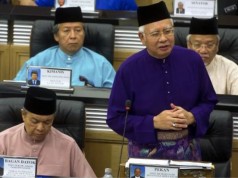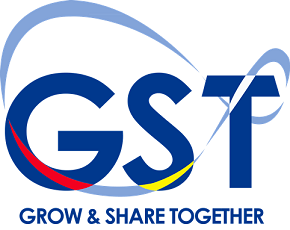 Targeted consumers will not have to pay GST on the purchase of RON95 petrol, diesel and LPG.
Targeted consumers will not have to pay GST on the purchase of RON95 petrol, diesel and LPG.
The Government has confirmed that the following items will not be subjected to GST:
(i) All types of fruits whether local or imported;
(ii) White bread and wholemeal bread;
(iii) Coffee powder, tea dust and cocoa powder;
(iv) Yellow mee, kuey teow, laksa and meehoon;
(v) The National Essential Medicine covering almost 2,900 medicine brands. These medicines are used to treat 30 types of diseases including heart failure, diabetes, hypertension, cancer and fertility treatment;
(vi) Reading materials such as children’s coloring books, exercise and reference books, text books, dictionaries and religious books; and
(vii) Newspapers.
The following are extract from the budget speech:
34. In 2015, with the implementation of the Goods and Services Tax (GST) Government revenue is estimated at RM23.2 billion. However, as a caring Government, we have exempted several goods from GST amounting to RM3.8 billion.
35. With the implementation of GST, the Sales and Services Tax (SST), will be abolished resulting in revenue foregone of RM13.8 billion. This means that after deducting RM13.8 billion and RM3.8 billion from a revenue of RM23.2 billion, the Government will have a balance of RM5.6 billion.
36. Of the total, RM4.9 billion is channelled back to the rakyat through assistance programmes such as the increase in Bantuan Rakyat 1Malaysia (BR1M). Finally, net revenue collection from GST will only amount to RM690 million.
Measure 1: Implementing GST
65. During the announcement of GST in the 2014 Budget, the Government proposed not to impose GST on basic food items and services. Based on the feedback received from all segments of society, the Government agrees to widen the scope of items that will not be subjected to GST as follows:
(i) All types of fruits whether local or imported;
(ii) White bread and wholemeal bread;
(iii) Coffee powder, tea dust and cocoa powder;
(iv) Yellow mee, kuey teow, laksa and meehoon;
(v) The National Essential Medicine covering almost 2,900 medicine brands. These medicines are used to treat 30 types of diseases including heart failure, diabetes, hypertension, cancer and fertility treatment;
(vi) Reading materials such as children’s coloring books, exercise and reference books, text books, dictionaries and religious books; and
(vii) Newspapers.
66. In addition, the Government has also agreed electricity consumption that is not subject to GST be increased from the first 200 units to 300 units. This will benefit 70% of households.
67. Further, to ensure the implementation of GST does not burden the rakyat, the Government has agreed that the retail sale of RON95 petrol, diesel and LPG be given relief from the payment of GST. Through this measure, consumers and targeted groups will not have to pay GST on the purchase of RON95 petrol, diesel and LPG.
68. Of the 944 goods and services in the basket of goods of the CPI, the prices of 532 items or 56% are expected to reduce up to 4.1%. Among the goods are medicines, electrical appliances such as refrigerators and washing machines, textile products, plastic products such as pails and plates, shoes and slippers, household furniture, baby diapers, soap, meat, chicken eggs, cooking oil, seafood, rice and vegetables.
69. Meanwhile, about 354 goods and services may experience some price increase but less than 5.8%. The Government hopes that traders will be responsible and not raise prices indiscriminately to burden the rakyat. The Government will disseminate shoppers’ guide to enable consumers compare prices before and after the implementation of GST.
71.The experience of other countries has shown that a key critical factor in the succesful implementation of GST is the level of readiness by businesses. To assist businesses, the following incentives and assistance will be provided:
First: Training grant of RM100 million provided to businesses for their employees to attend GST courses;
Second: Financial assistance amounting to RM150 million provided to SMEs for the purchase of accounting software;
Third: Accelerated Capital Allowance on purchase of ICT equipment and software; and
Fourth: Expenses incurred for training in accounting and ICT relating to GST will be given additional tax deduction.
